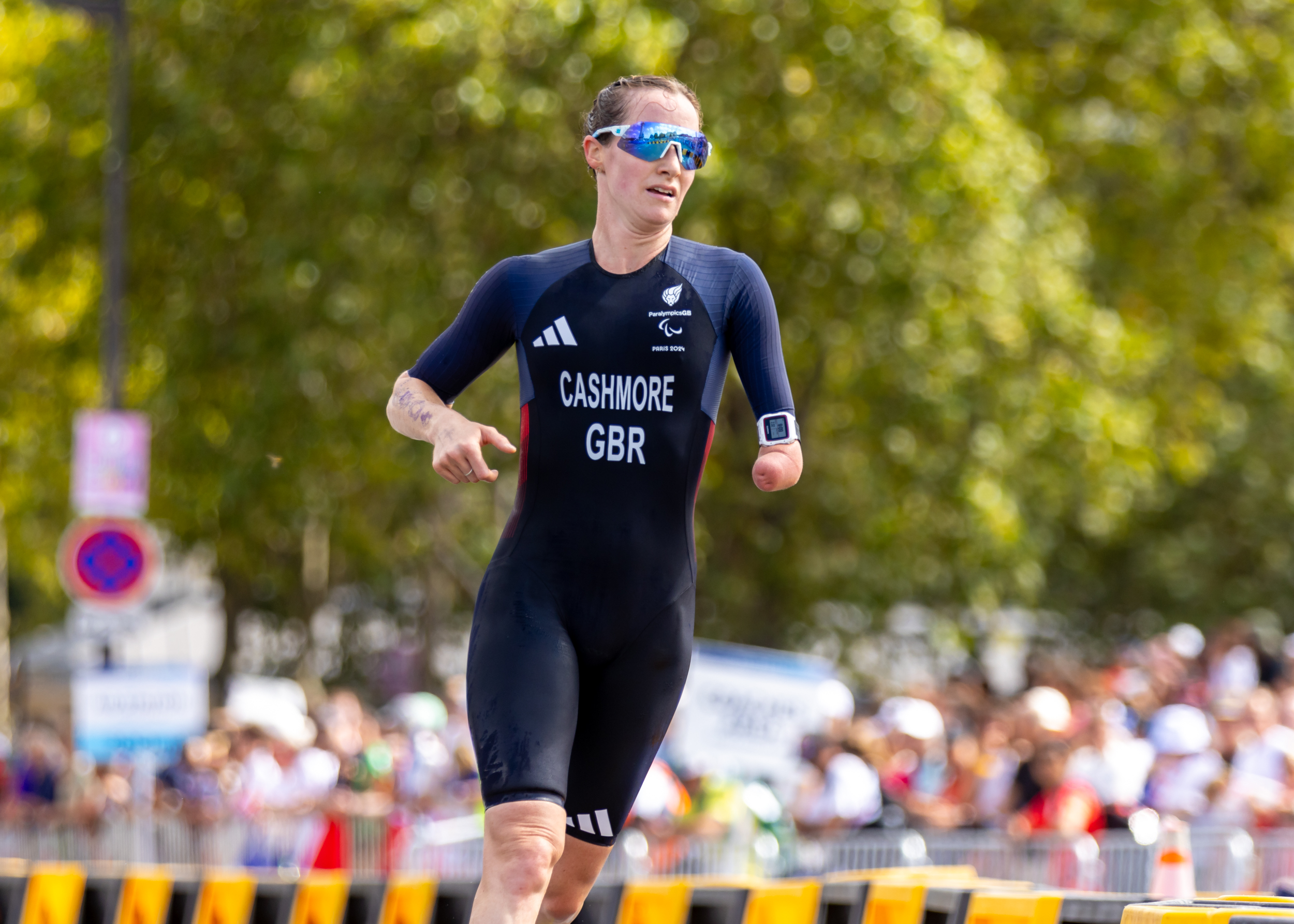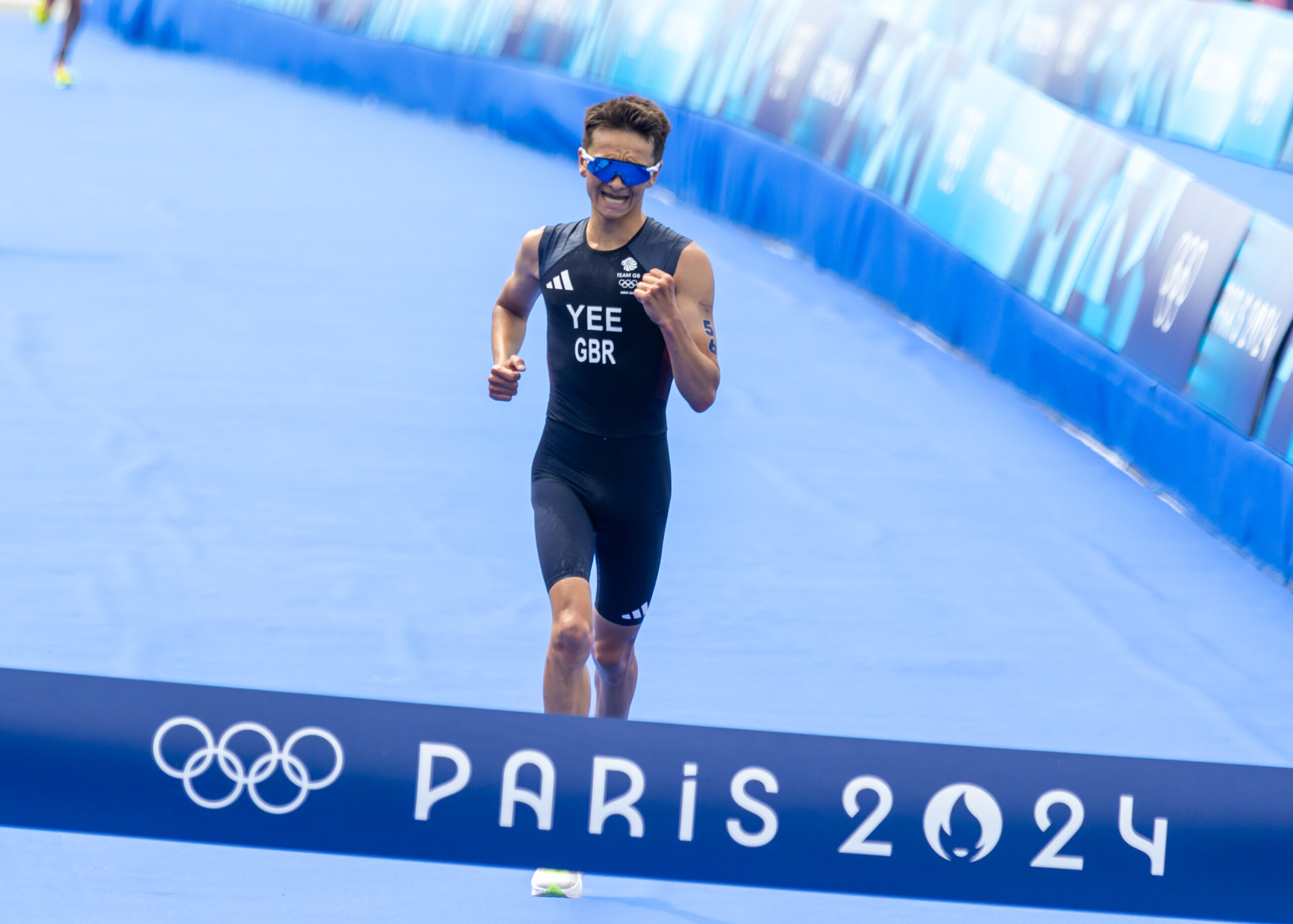Optimising Tri-Suits for Paris
Ahead of the Paris Games, World Triathlon changed the rules around tri-suits, prompting British Triathlon to contact the UK Sports Institute’s Performance Innovation Team to investigate if this rule change could present an opportunity. The resulting project was shortlisted for the ‘Tech in Sport Award’ at the 2025 Sport Industry Awards.
Utilising their vast experience from working with other sports, particularly cycling and swimming, the UKSI team set about applying knowledge to the development and design of a unique and high-performing tri-suit. Every athlete underwent an individualised fitting and extensive consultation and ultimately had bespoke garments suited to their specific performance plans and needs for the Paris Games.

Triathlon is both an individual and team sport, with three different disciplines, each requiring something different when it comes to sporting attire. Additionally, each individual athlete has varying strengths and weaknesses and technical requirements or restrictions across each of the swim/bike/run. The solution that resulted was that every athlete had bespoke garments suited to each of their performance plans and need across both the Paralympic and Olympic Games.
GB topped the Olympic triathlon medal table and finished second in the Paralympic equivalent, with British Triathlon Performance Director Mike Cavendish commenting: “This was a huge step forwards for us as a programme, and we are in no doubt that these suits contributed to the medal-winning performances in Paris.
“Athletes have specifically mentioned feeling that there had been no stone unturned, and that the feeling that had when putting on the suit gave them the extra belief in their preparation that they needed to be successful.”
The aims of the tri-suit optimisation project were as follows:
- A suit that optimised hydrodynamics, aerodynamics, thermal comfort and fit for each athlete
- Engage with the athletes, coaches and support staff to embed the suit development project as a key work stream in their Games preparation
- A suit that could be tailored to individual athlete needs yet to still remain visually Team GB – such as bespoke chamois, linings and coatings
- Maximise performance gains while keeping to strict sport and Olympic and Paralympic rules
Mike Cavendish continued: “The real ‘win’ for this project was the huge volume of athlete engagement that took place right from the outset. The UKSI team – led by Fiona Johnson – undertook a huge volume of fact-finding sessions with athletes to understand what worked and what didn’t from the current off-the-shelf offer, the various size curves and the bespoke fitting requirements, with every athlete undergoing an individualised fitting.
“This was allied with a forensic studying of the rules to understand the opportunities for maximising performance gains and the limitations we had to work within.”

The UKSI team engaged with their network of consultants, as well as expertise gained from developing suits in cycling and swimming and iterated throughout a two-year process. This built on the athlete and coach engagement to work the suit development, iteration and testing requirements into the athletes training plans to ensure that the project remained focus on the athletes and their individual needs, and how this might change depending on the constantly changing environmental conditions that they would face in Paris.
What transpired was a suit that looked distinct from any other, particularly in the capped sleeves, enclosed backs with the aerodynamic detailing to help reduce drag. Different suits were produced for those with whom there were concerns about either high or low temperatures, those wishing to maximise their swim, bike or run phase and suits that maximised the opportunity of the rule change in the Paralympic space.
UKSI Performance Innovation Consultant Fiona Johnson added: “The project was delivered by a team rich with industry experience. The UKSI network is made up from typically small, agile and highly skilled UK-based consultants.
“All programmes of work were contracted with independent textile consultants and apparel engineers working within the UK, its diverse and agile model provided an excellent response to these performance questions. We provide our network with the ability to learn from testing in a safe space – leading to greater growth around performance apparel.
“As we targeted specific athletes and went for bespoke custom fits and solutions for each athlete, what we avoided was having to do mass production runs of full-size sets and options and therefore the wastage of resources and final units being made was reduced massively compared to traditional bulk manufacture. This is an approach we are committed to through future Olympic and Paralympic Games.”
Find out more about British Triathlon
Find out more about the Sport Industry Awards